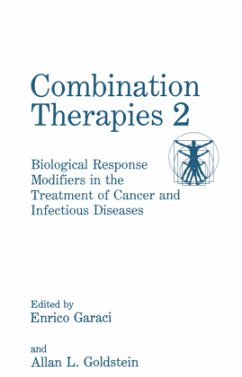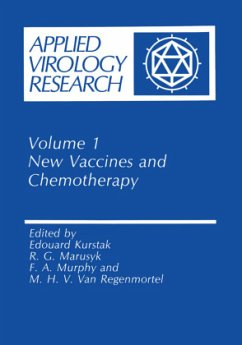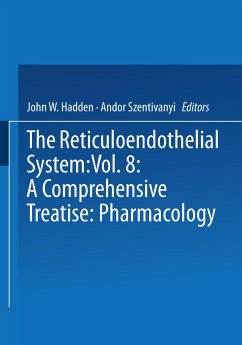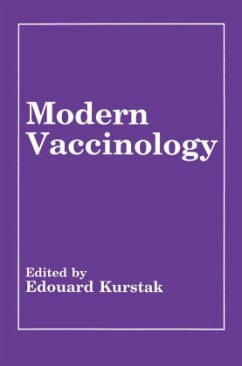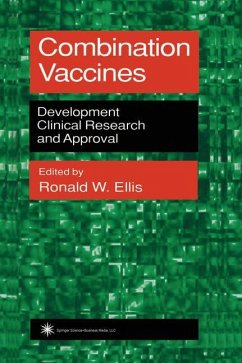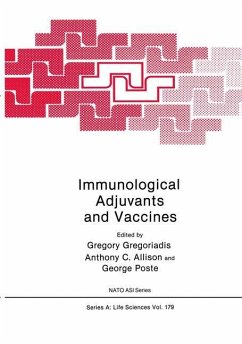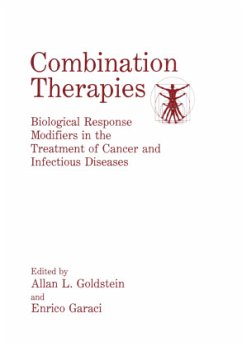
Vaccines
Recent Trends and Progress
Herausgegeben: Allison, Anthony C.; Gregoriadis, Gregory; Poste, George

PAYBACK Punkte
20 °P sammeln!
The success of vaccination in controlling infectious diseases is well documented. However, low profitability, expense and liability have hindered research and development of vaccines. Recently, increasing realization (enhanced by the AIDS pandemic) of the need to overcome such difficulties has led to steps being taken by national authorities, non-profit and commercial organizations to resolve them. This has been facilitated by developments in recombinant DNA techniques, the advent of monoclonal anti bodies and progress in the understanding of the immunological structure of proteins which have ...
The success of vaccination in controlling infectious diseases is well documented. However, low profitability, expense and liability have hindered research and development of vaccines. Recently, increasing realization (enhanced by the AIDS pandemic) of the need to overcome such difficulties has led to steps being taken by national authorities, non-profit and commercial organizations to resolve them. This has been facilitated by developments in recombinant DNA techniques, the advent of monoclonal anti bodies and progress in the understanding of the immunological structure of proteins which have laid the foundation of a new generation of vaccines. Such vaccines are defined at the molecular level, can elicit immune responses controlling infectious organisms and are therefore potentially free of the problems encountered in conventional ones. Unfortunately, subunit and synthetic peptide vaccines are often only weakly or non inmunogenic. However, developments in both antigen production and immuno potentiation of weak antigens have opened new avenues with exciting prospects for vaccine design.





